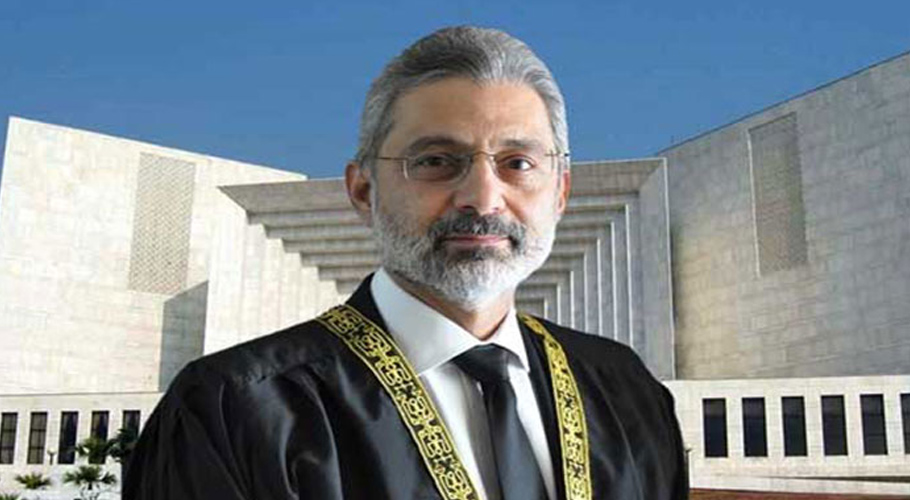The Supreme Court of Pakistan, Chief Justice Qazi Faez Isa voiced strong criticism against a Presidential Ordinance related to the formation of election tribunals. The proceedings, centered on an appeal by the Election Commission of Pakistan (ECP), highlighted significant constitutional and procedural concerns.
Chief Justice Isa, presiding alongside Justice Naeem Akhtar Afghan, expressed his dismay over the issuance of the Presidential Ordinance, suggesting it undermined parliamentary authority. He emphasized that enacting laws through ordinances after parliamentary legislation was an affront to democratic principles, stating unequivocally, “If the work is to be carried out by an ordinance, then parliament should be shut down.”
The dispute arose from the ECP’s appeal regarding the constitution of election tribunals, which are crucial for adjudicating electoral disputes. During the hearing, the Chief Justice questioned the necessity and legitimacy of the ordinance, particularly its timing and the absence of parliamentary debate.
The proceedings unfolded with exchanges between Chief Justice Isa, ECP’s lawyer Sikandar Bashir, and representatives of the government. Key points of contention included the timeline of tribunal formations, interactions between the ECP and High Courts, and the constitutional rights and responsibilities of various governmental bodies.
Chief Justice Isa underscored the sanctity of parliamentary legislation, noting that according to Article 219 of the Constitution, the ECP possesses the authority to constitute election tribunals independently. He criticized the issuance of the Presidential Ordinance as an unnecessary intervention, questioning the urgency that prompted its implementation.
The courtroom dialogue also delved into procedural matters, with Chief Justice Isa highlighting instances where the language used by the ECP’s lawyer in court could be misconstrued. He emphasized clarity in legal arguments, particularly regarding the roles and responsibilities of judicial versus executive bodies in matters of electoral dispute resolution.
Moreover, the Supreme Court bench sought clarification on why election tribunals were established in some provinces but not others, signaling a desire to ensure uniformity and consistency in the electoral dispute resolution process nationwide.
The debate expanded to encompass broader themes of governance and constitutional interpretation. Chief Justice Isa’s comments reflected concerns over the balance of powers between parliament, the executive, and the judiciary, echoing the principles of democratic governance enshrined in Pakistan’s Constitution.
The hearing drew attention to the complexities of Pakistan’s electoral framework and the legal challenges inherent in ensuring fair and transparent elections. It also underscored the judiciary’s role in upholding constitutional principles and safeguarding the integrity of electoral processes against perceived encroachments by other branches of government.
As the proceedings continue, stakeholders await further developments and judicial decisions that could impact the future administration of elections in Pakistan. The Supreme Court’s scrutiny of the Presidential Ordinance serves as a pivotal moment in assessing the legal boundaries of executive authority in legislative matters.




